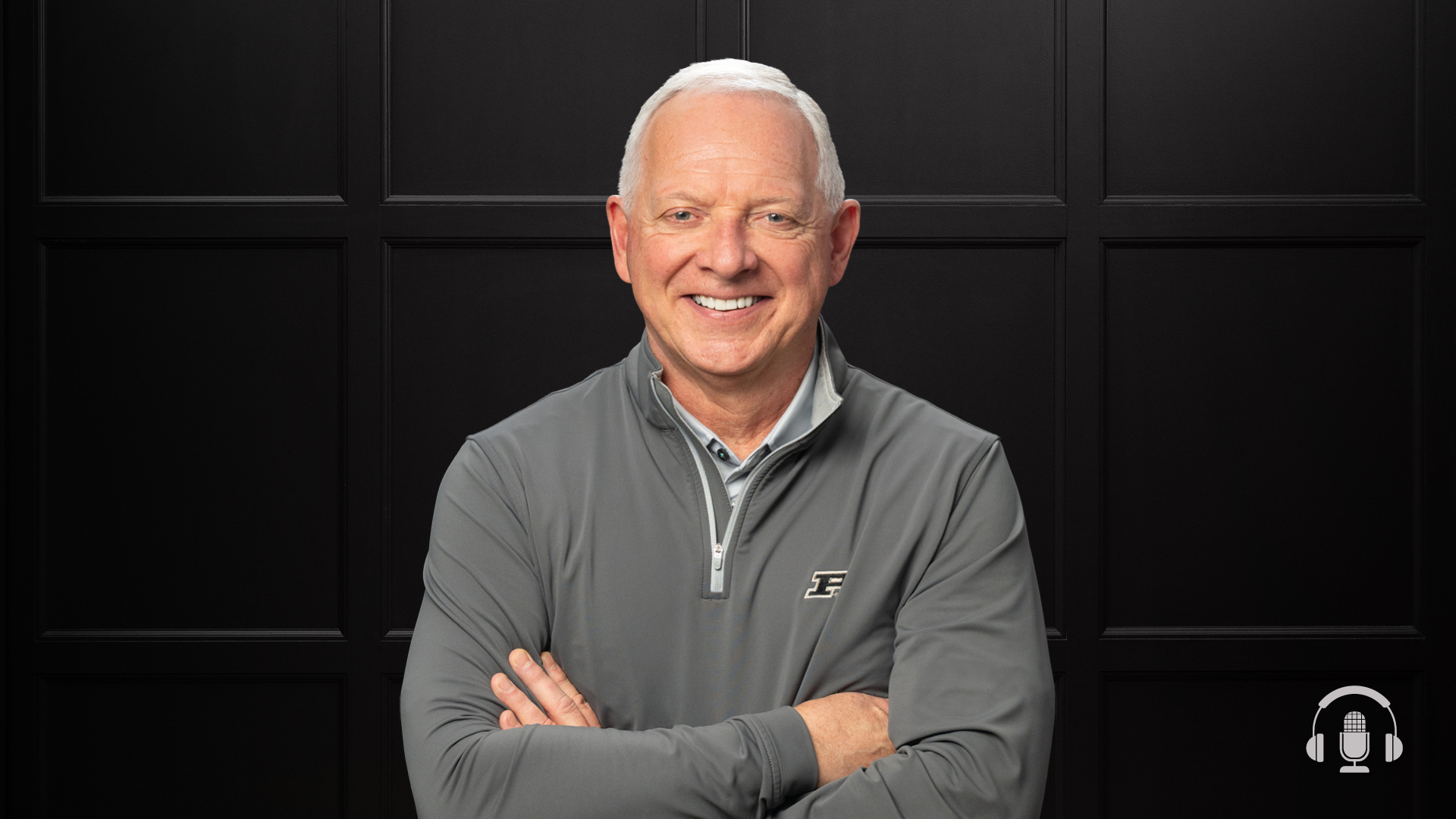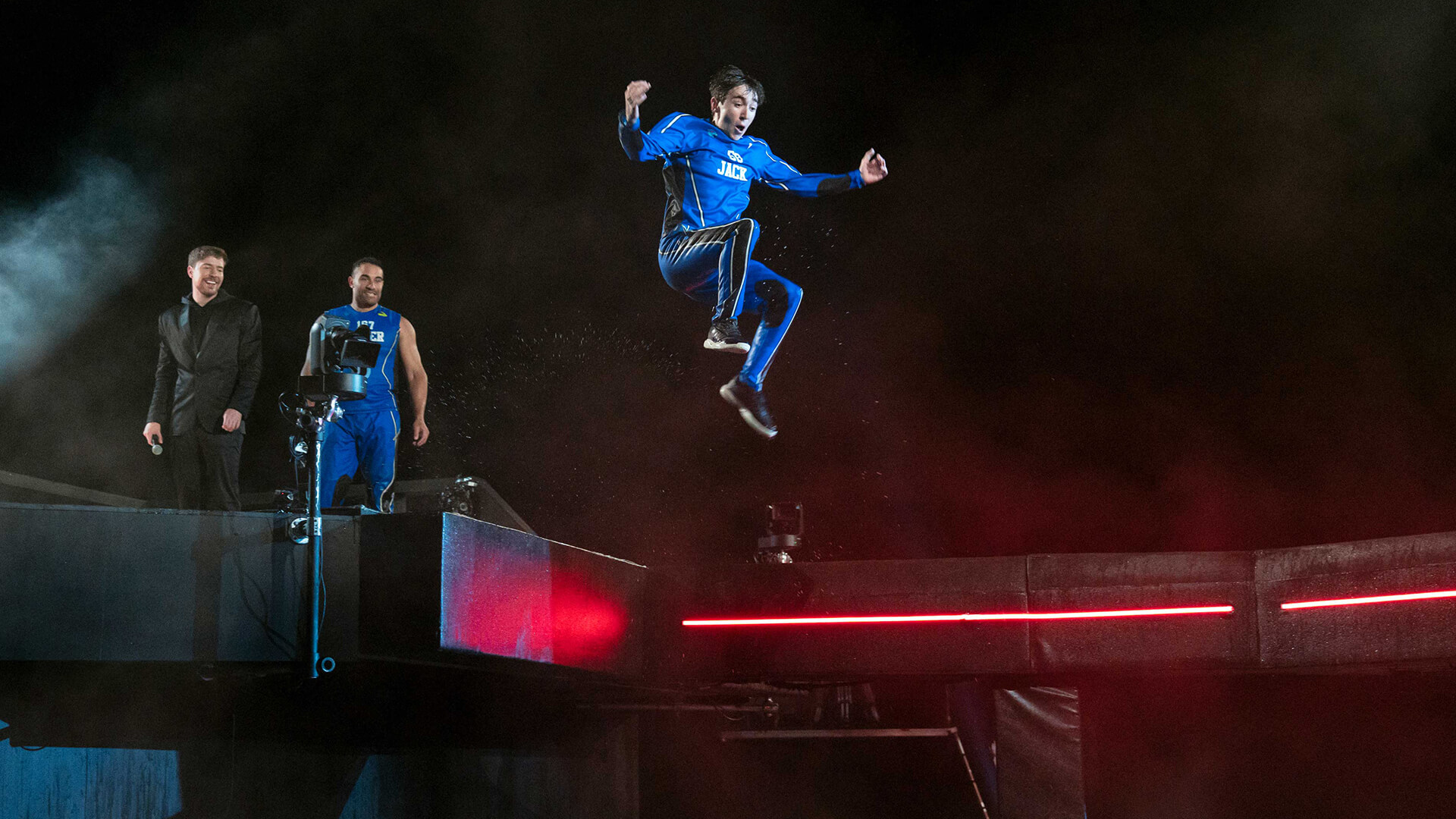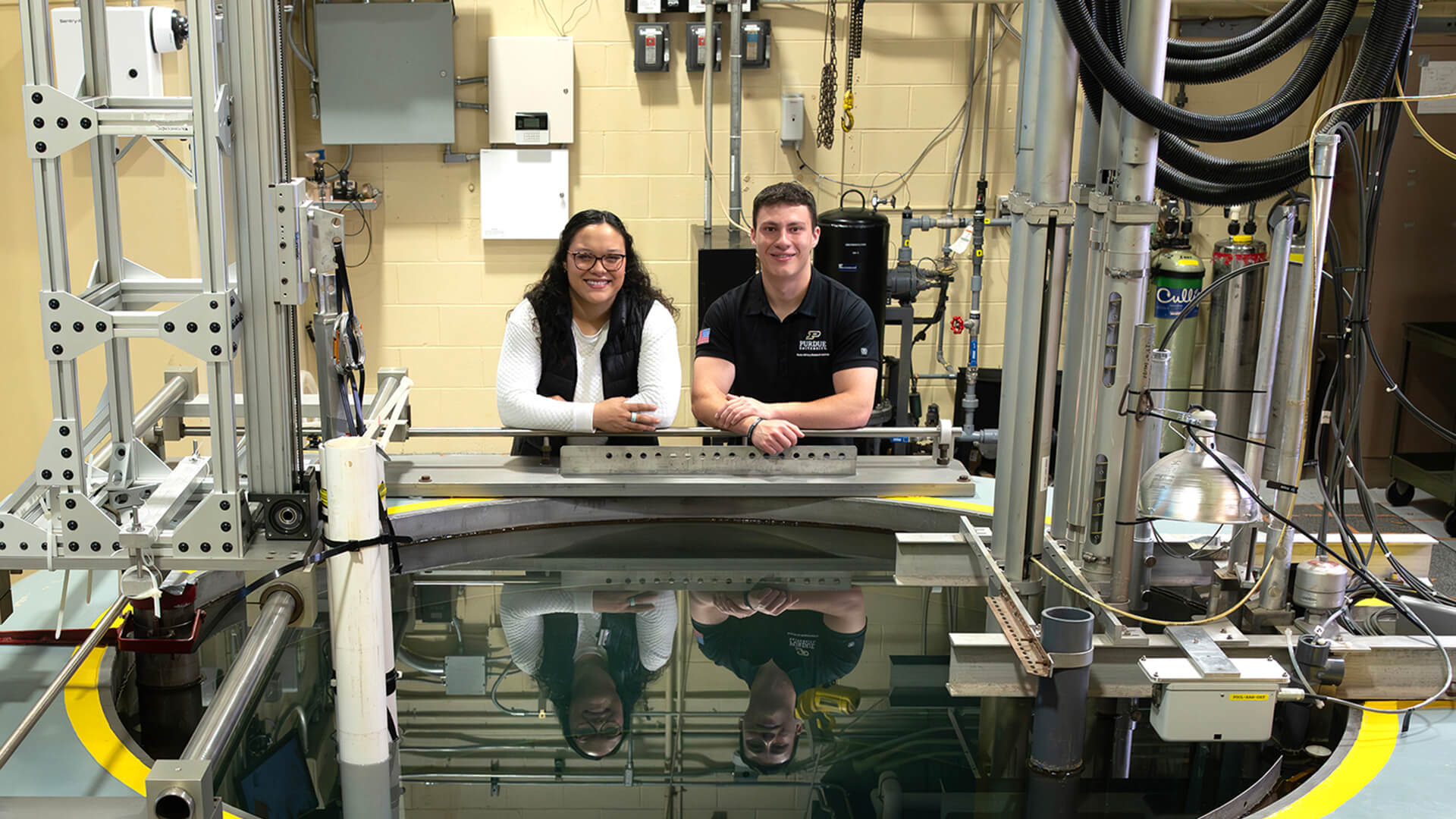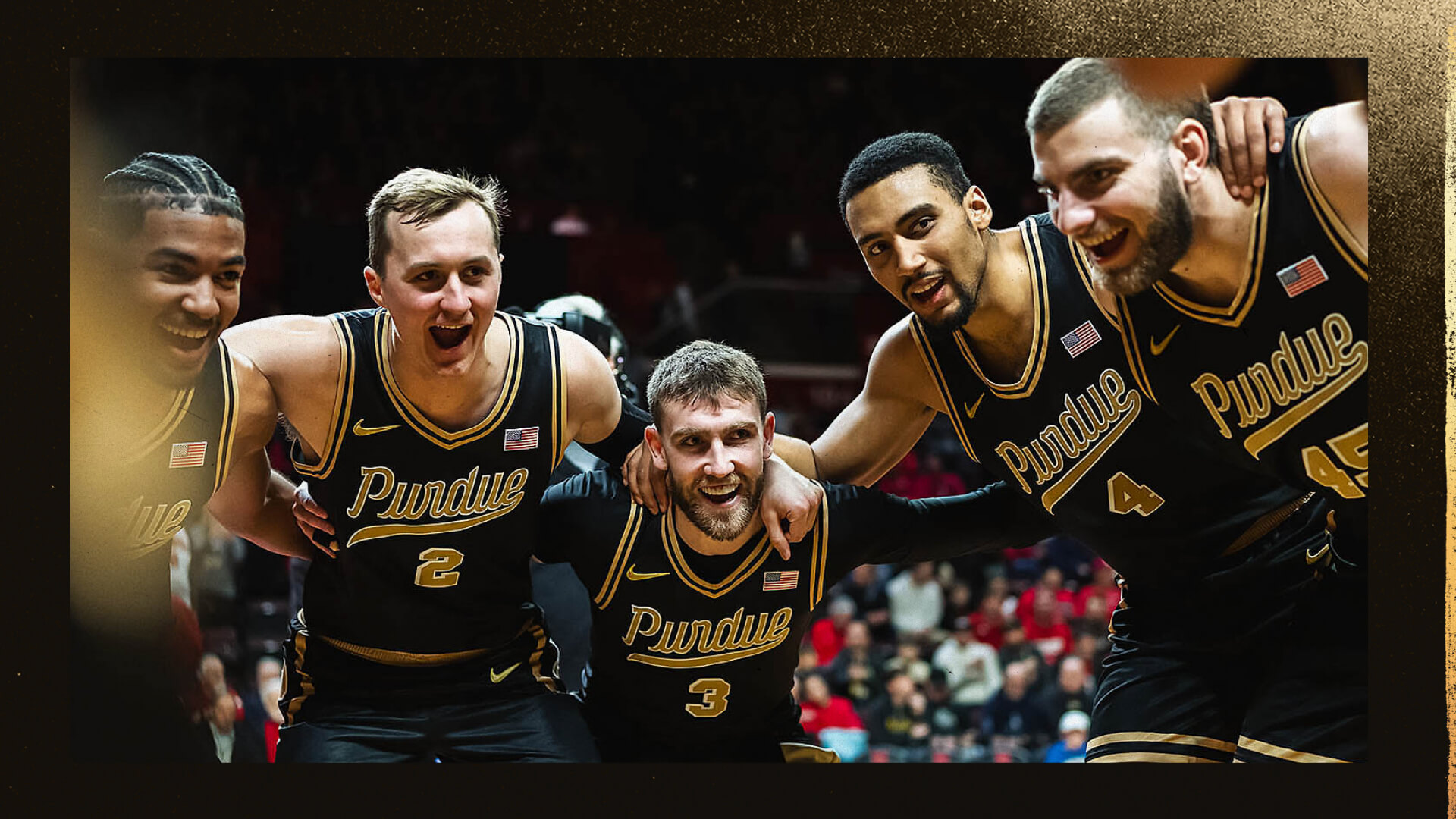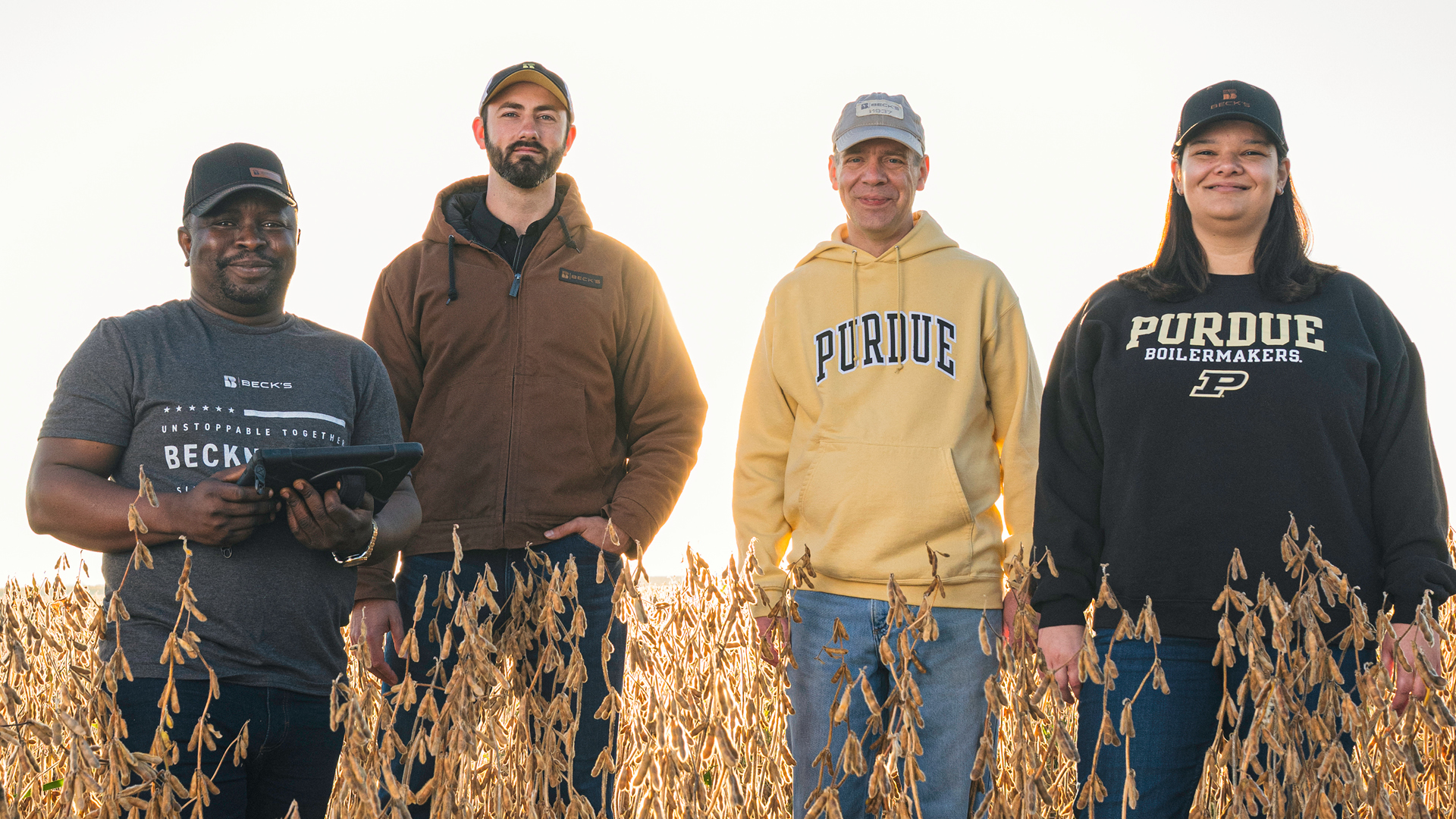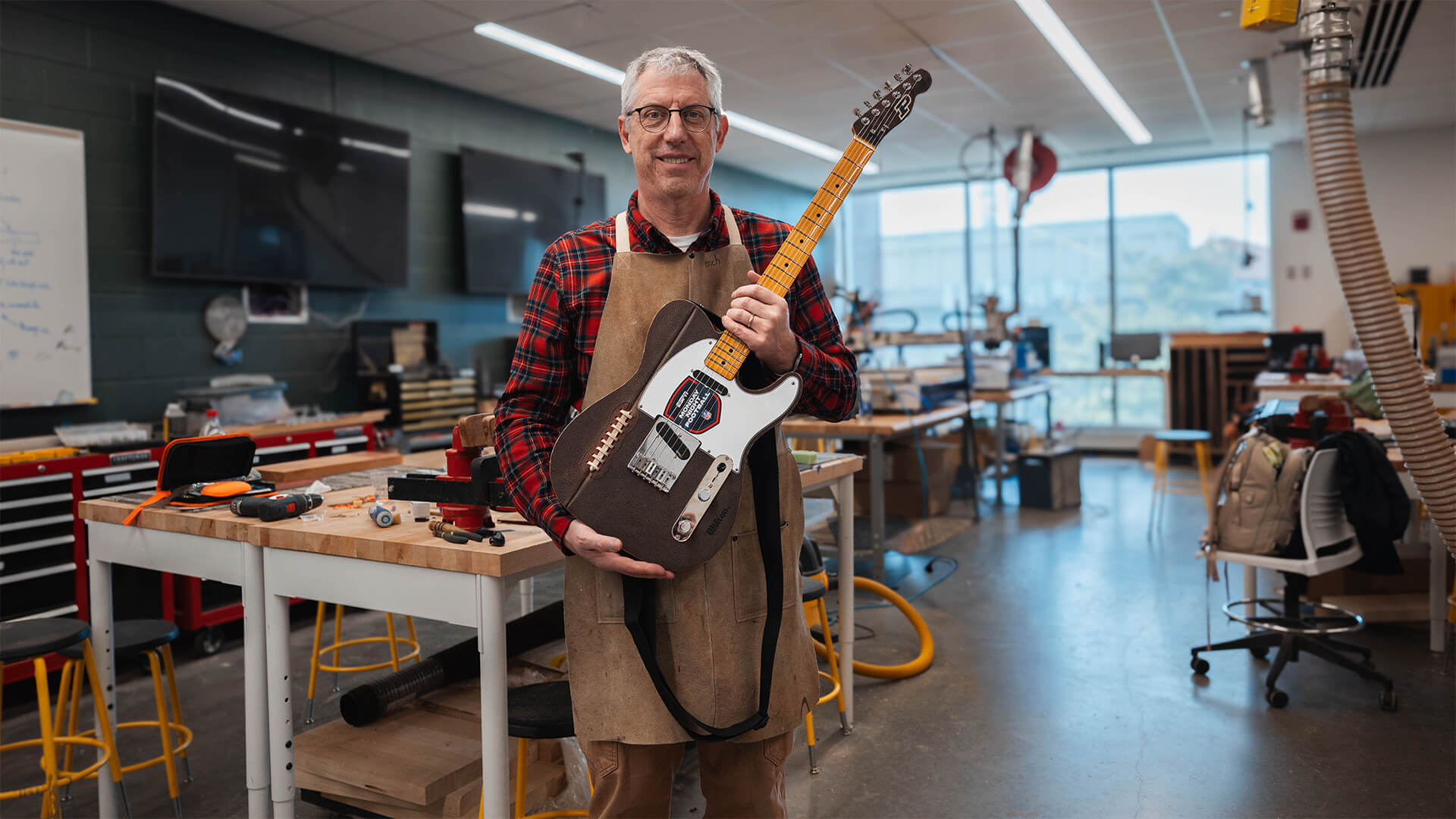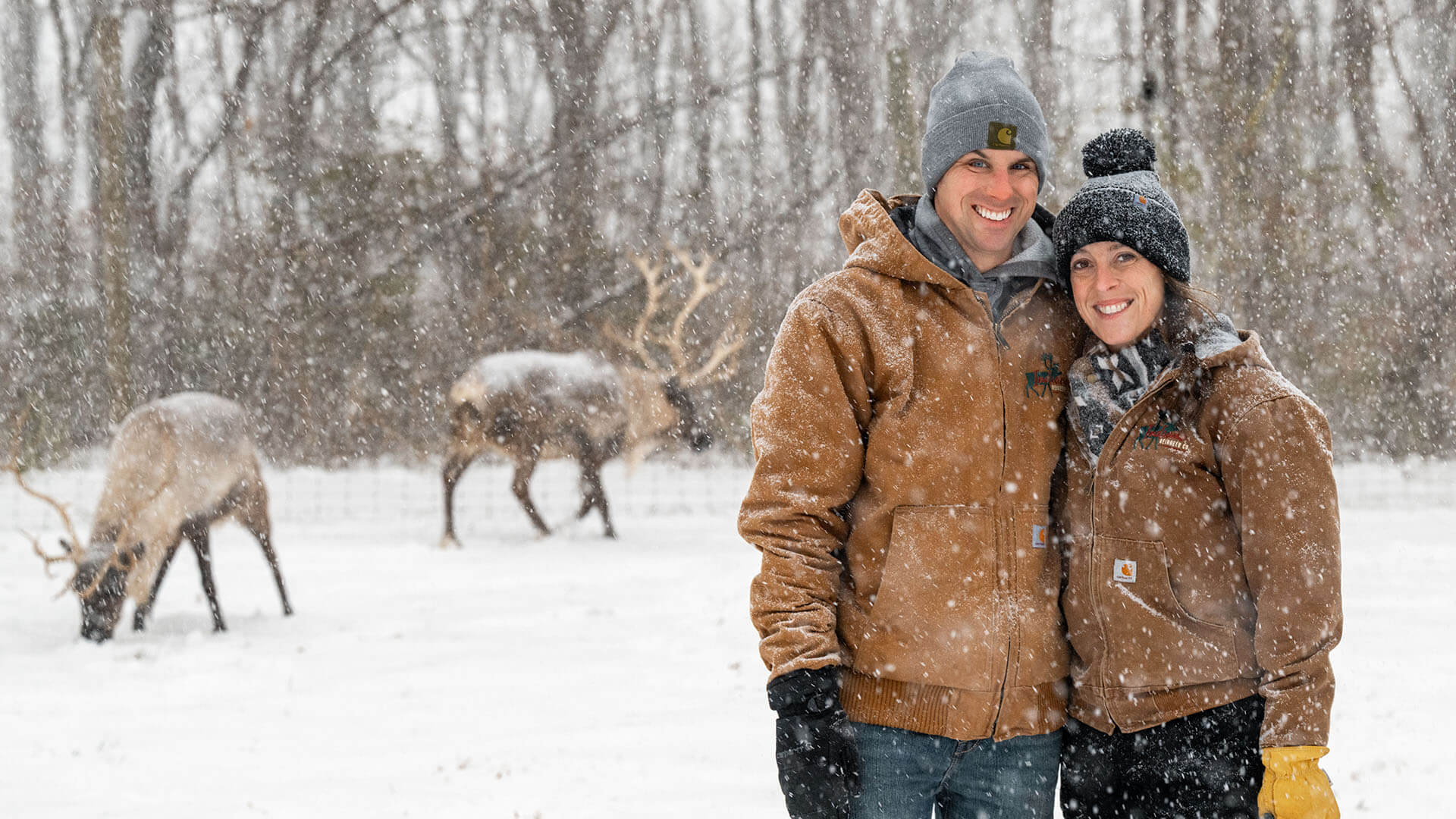Boiler Up, Hammer Down Under
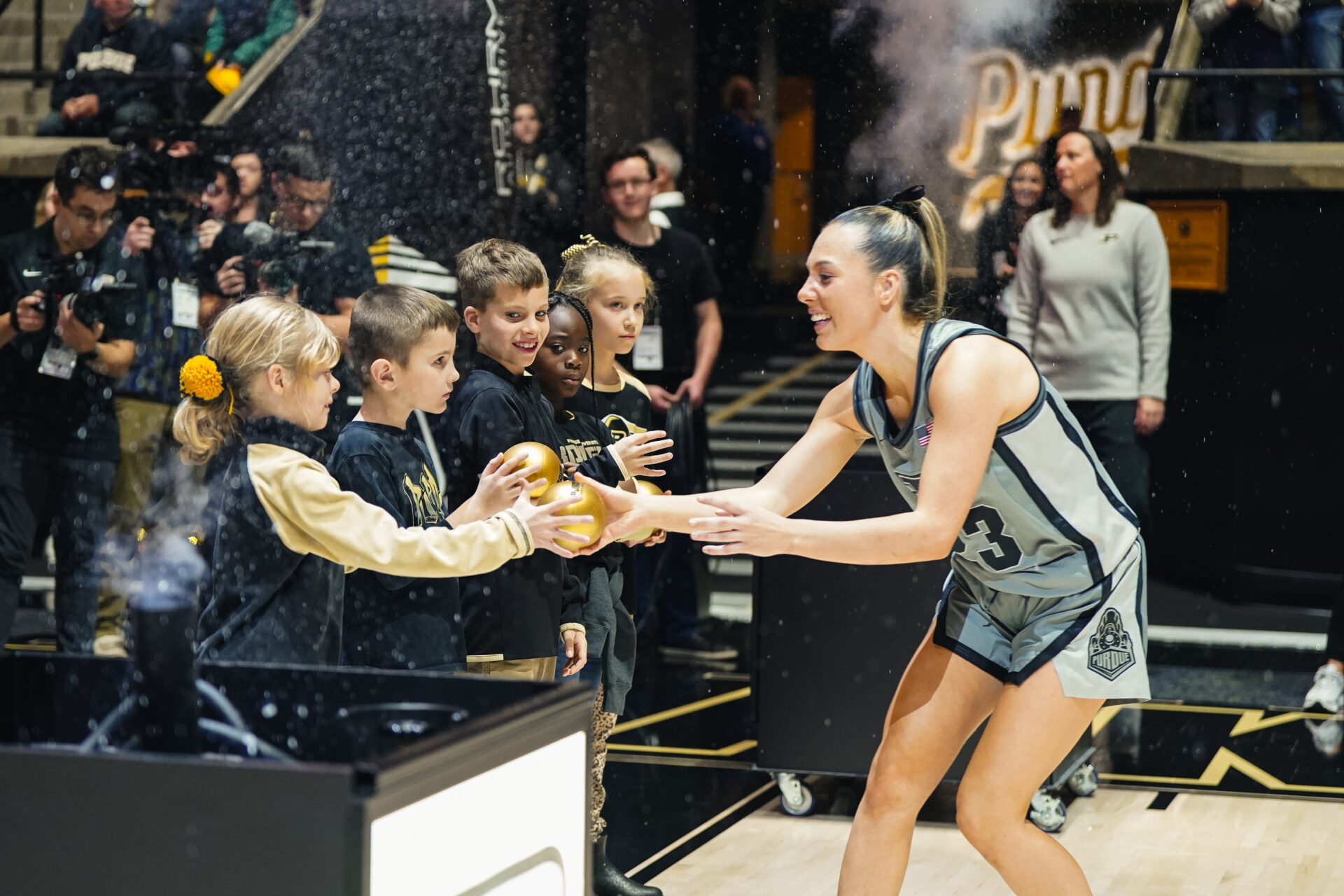
Abbey Ellis of the Purdue Boilermakers Women's Basketball team is seen at a game in Mackey Arena vs Valparaiso on December 3, 2023
Abbey Ellis has made her mark on the court halfway around the world from home
Libby Ellis says her daughter, Abbey, avoided drama as a child and was hesitant to speak up for herself.
“We would go to a fast-food restaurant, and if they forgot to put something on her sandwich, she would tell me,” her mom says. “I told her to go and get it fixed, but she would just eat it the way it was. I’m more of a confronter, but that didn’t fit her personality then.”
Watching the 5-foot-6 Ellis now compete as the smallest player on the court for Purdue women’s basketball contradicts that notion. She regularly throws her body around on the court, shows her emotions to the crowd, and isn’t afraid to give a questioning glance or gesture to a referee she feels is in error.
“Purdue has made her grow. It’s been amazing to watch. Not everything has gone smoothly, but she’s figured out how to get through it,” Libby says with pride.
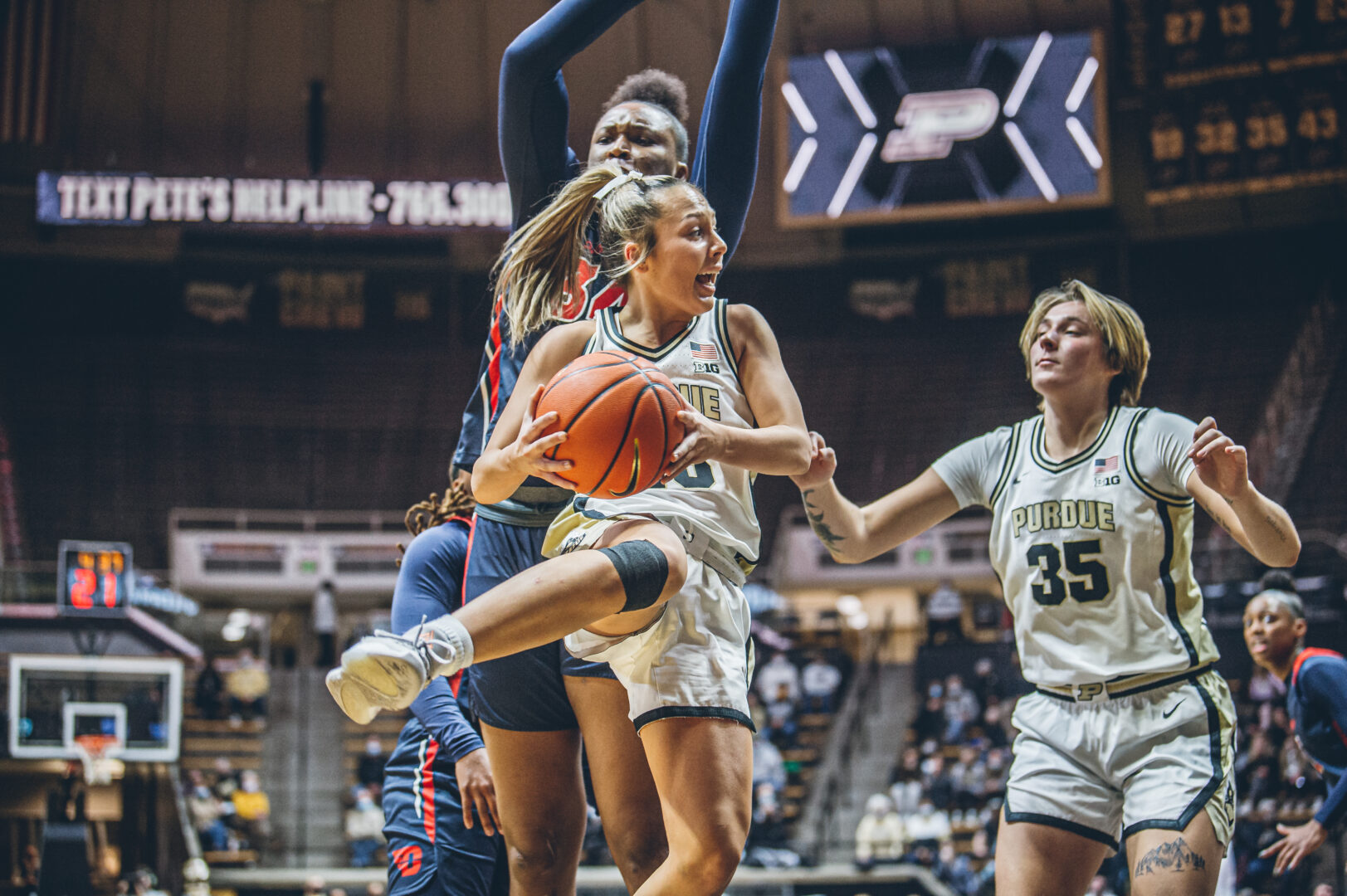
Court beginnings
Abbey, the second of four daughters of Martin and Libby Ellis, first set foot on a basketball court in Melbourne, Australia, at age 6.
“Mom put me on the court with my best friend then — and she’s still my best friend — and I immediately liked it,” Ellis says. “It wasn’t until I was 13 or 14 that other girls started growing taller than I was, so my coach decided then to put me at point guard.”
Ellis also played netball, a game similar to basketball but with key differences. Played on a rectangular court with seven players per team, teams shoot a ball into a net that does not have a backboard. There is no dribbling, bouncing or running while possessing the ball.
Ellis says netball helped her learn to see the floor and anticipate what would happen. Her mother agrees.
“Footwork is very important in netball, and learning how to play angles is vital,” Libby says. “Given her lack of height, Abbey had to learn how to maneuver around the court in both sports. Each coach wanted her to specialize in their particular sport, but she was determined to play both.”
One popular sport in Australia that Abbey was not permitted to play was Australian Rules Football, a game with strong similarities to rugby known for its physical nature. Ironically, Martin was an Australian Rules Football official who worked 244 matches in 13 years, including the 2001 Grand Final.
“We had to protect her from getting hurt so she could play her other sports,” Libby says.
Coming to America
Around the age of 15, Abbey was watching the NCAA Tournament on television and started to get the itch to take part in March Madness. She and her family had been to the United States a few years earlier to visit Disneyland, and she went on tour through the Australian National Youth system to play in Dallas in 2018.
This is what she wanted to do, and she had been gifted with the talent and opportunity to do it.
Libby ellis
Abbey’s mother
She began setting up Zoom sessions with coaches to find her best fit for college and committed to play for Cal Poly, a member of the Big West Conference located in San Luis Obispo between San Jose and Santa Barbara.
For Abbey, the move to college was a long plane flight. For Libby, it was a difficult time to let go.
“I was thrilled for her, but right before she left, I was a mess,” admits Libby, who has delivered babies as a midwife for more than two decades. “I eventually had an epiphany that I was spoiling her moment. This is what she wanted to do, and she had been gifted with the talent and opportunity to do it.”
Abbey adapted well, starting 52 of her 53 games at Cal Poly. She averaged more than 15 points per game, shot better than 86% from the free-throw line, and was named to the Big West All-Freshman team in year one and was a first-team All-Big West selection as a sophomore.
She was able to return home for a short time after every season. The most difficult time came after her freshman year, when she was quarantined for 12 days in a hotel room because of the COVID pandemic. “I thought I was part of a social experiment after about 10 days,” she admits.
Next giant leap
After her sophomore season, Ellis decided to enter the transfer portal.
“I wanted to push myself to get better, and I felt I was ready to play against great players,” she says. “Purdue was the first team to reach out.”
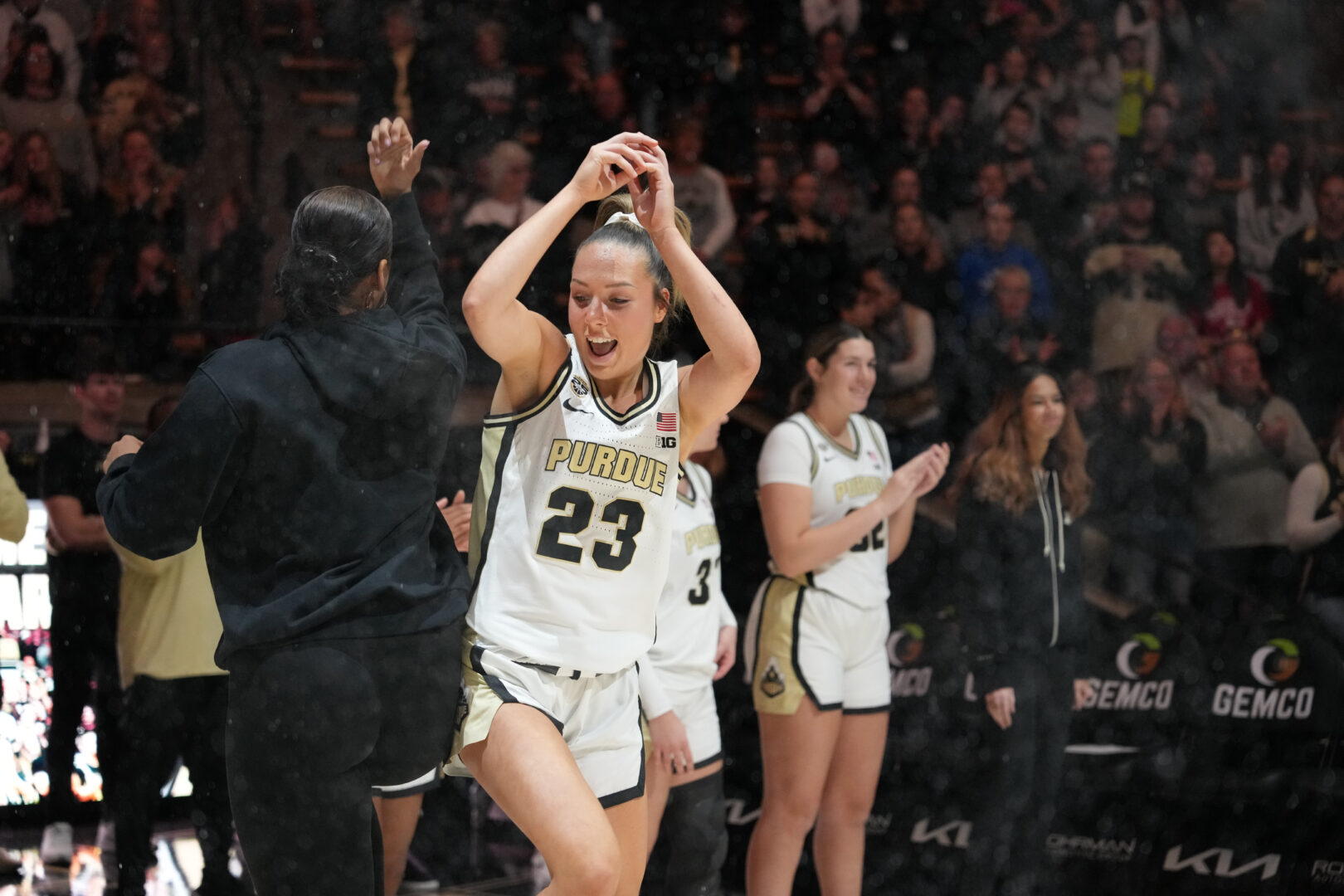
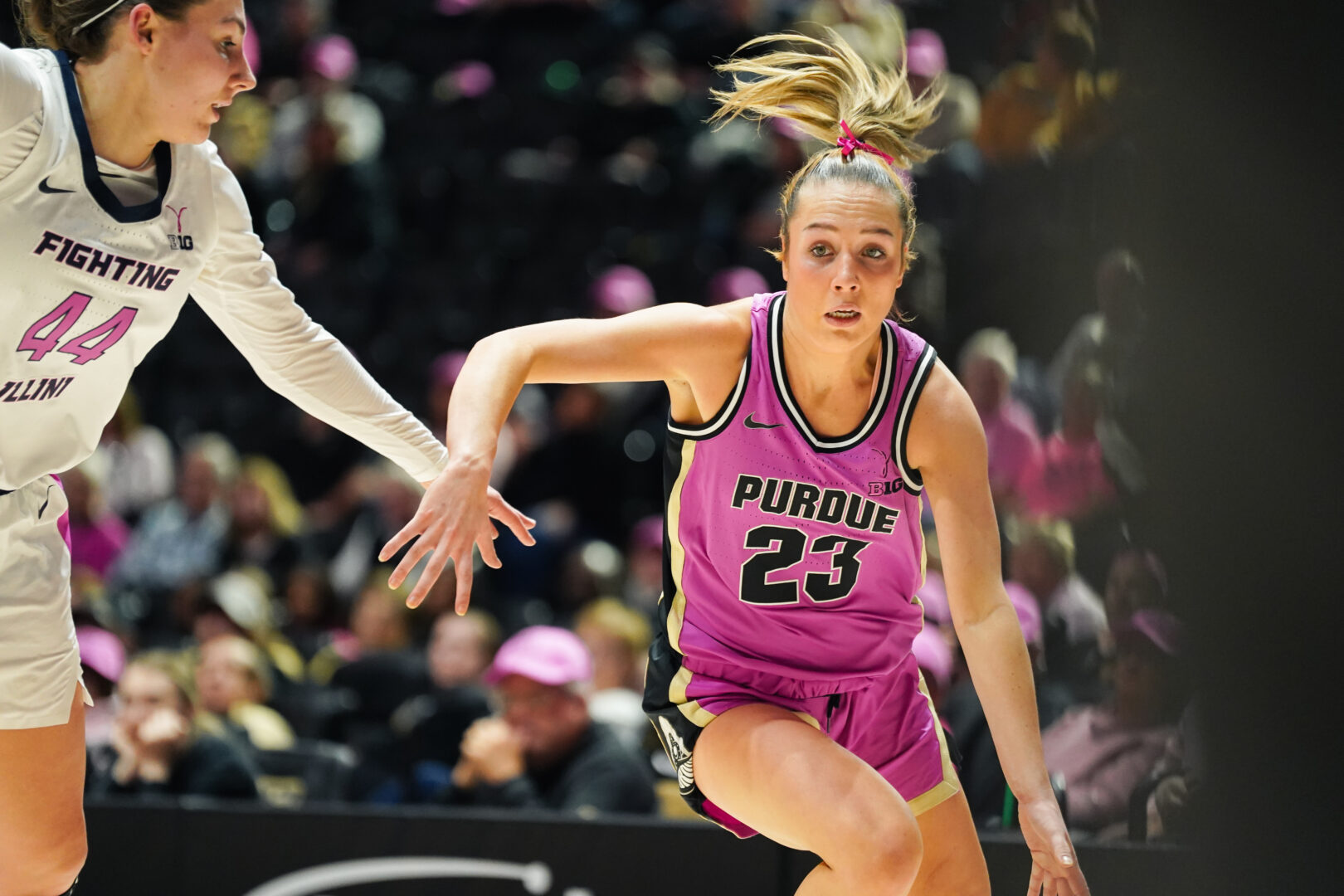
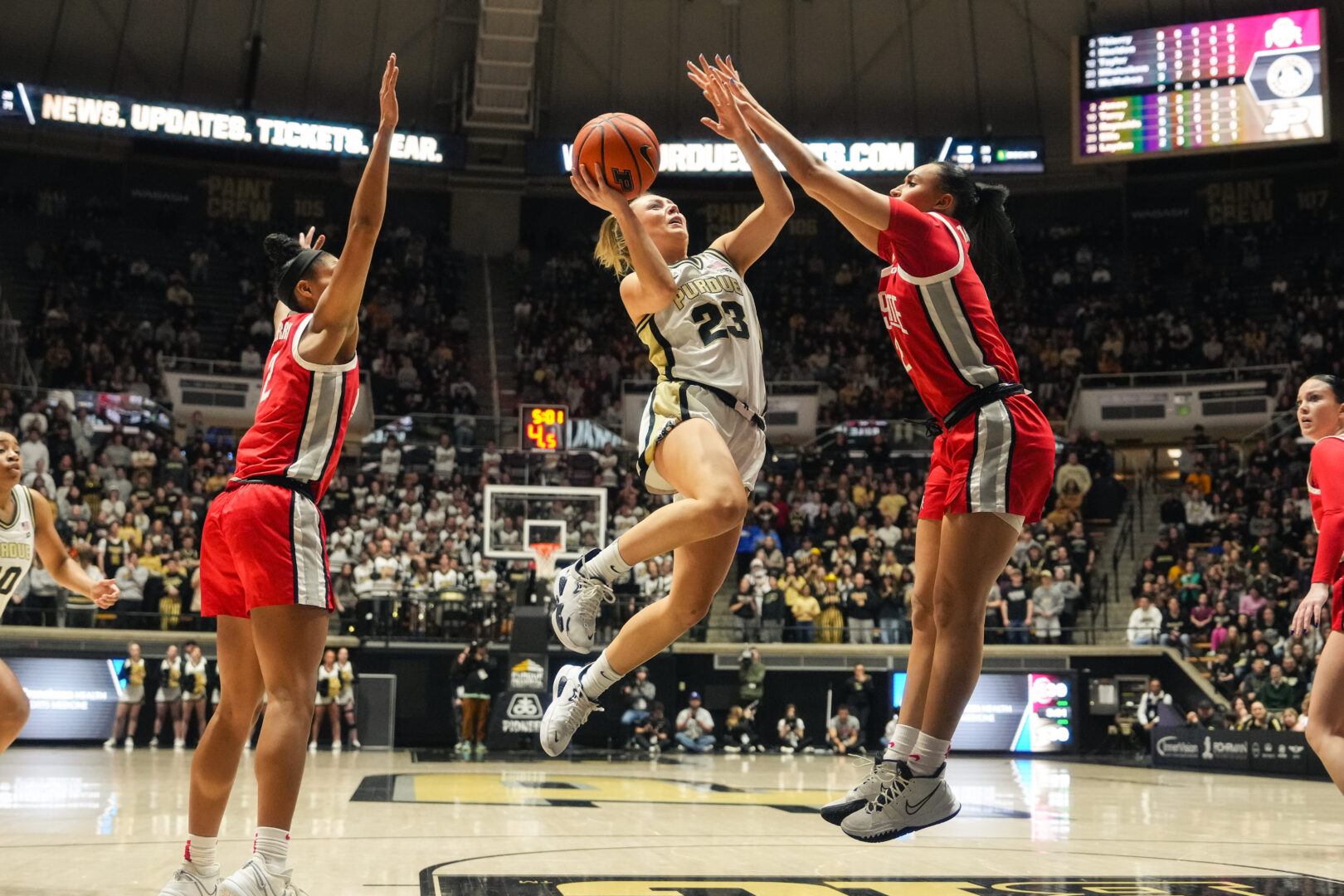
Katie Gearlds was hired in March 2021 to the Boilermaker coaching staff with the plan to become the head coach for the 2022-23 season. The timeline was moved up when Sharon Versyp announced her retirement in September.
Gearlds had been in contact with Ellis, knowing Purdue had weaknesses to address. “We knew we needed to add a guard who could score, and Abbey was a great fit,” Gearlds says. “We liked her bubbly personality and the fact that she had been in pressure situations at Cal Poly. When she got here, she was exactly who we thought she was.”
Ellis admits she was somewhat taken aback by the flat geography and the cold of her new Midwest home. She hadn’t seen snow before coming to Purdue, and the coldest weather she typically saw in her home country never dipped below 50 degrees Fahrenheit.
It took her a few games to get acclimated to the on-court differences between the Big West and the Big Ten, most notably the more physical nature of the games. But she had a solid rookie season with the Boilermakers, averaging 11.5 points and three assists per game and earning All-Big Ten honorable mention status.
Ellis continued her improvement in the 2022-23 season, again averaging better than 11 points a game. She led the Big Ten and was third in the nation in free-throw percentage at 91.7% and was again named All-Big Ten honorable mention. The Boilermakers played in their first NCAA Tournament game since 2017, winning 19 games overall.
Bonus year
Ellis decided to stay and play a fifth year at Purdue, as all student-athletes were allotted an extra year of competition after the 2019-20 season ended prematurely because of the pandemic. She leads the team in scoring this year and cracked the 1,000-point mark as a player at Purdue, becoming the 36th player in program history to do so, after scoring 818 points at Cal Poly.
Her parents, aunt, and uncle will fly to Indiana to participate in Senior Day activities. Ellis has relished her time playing for the Boilermakers, and particularly in Mackey Arena.
“It’s such a great family atmosphere. It’s electric when the arena gets loud, and we really feed off each other,” she says.
She’ll wear another ribbon in her hair that night, just as she has in every game since her youth. Libby sends her several options each year, and Abbey selects the color for every game.
She’ll undoubtedly throw her body around the court with reckless abandon, as she’s done throughout her career. She’ll graduate with an early childhood education degree in May and would like to continue to play basketball, most likely in Europe, before beginning a teaching career either in Australia or the United States.
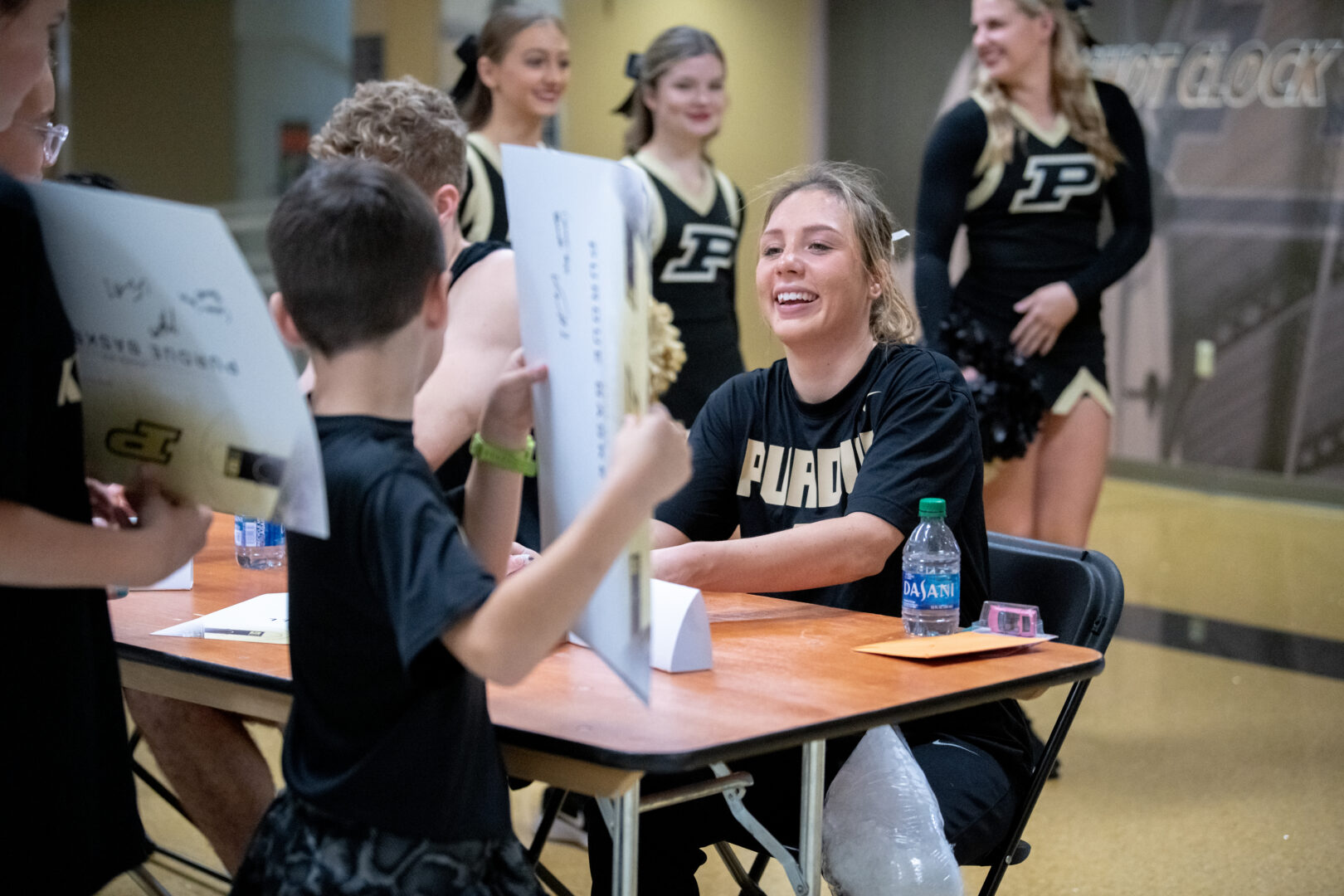
Whatever her future holds, Gearlds says Ellis’ legacy as a Boilermaker is secure. She came in as a transfer the same year as Jeanae Terry (from Illinois). Along with Madison Layden and Cal Baptist transfer Caitlyn Harper, that quartet provided a solid senior class for this year’s team.
“We haven’t won as many games this season as we wanted, but this group has left our program a much better place,” Gearlds says. “When you look at culture, our locker room, and our practices, you can see we’ve added good people.
“Abbey is right at the top of that list. She’s adored by the community, and she knows no strangers.”
As a result, chances are she gets her restaurant food to order these days.
Written by: Tim Newton
